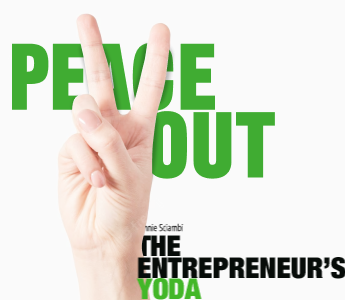The Biggest Questions for Small Business Owners

How do you build a business that provides a product or service that addresses a market need or solves a market problem, while employees grow, customers thrive, and the business succeeds?
Sounds like a fairy tale, right?
But you know, it can be done. And has been… and very well, at that.
While other companies made and lost their fortunes, Carey’s business practices led to sustained, rapid growth averaging 30% annually.
How?
It starts with an entrepreneur with a vision, who cares about his employees and his customers. Who wants to make a difference. And is serious about those words.
Contrarian entrepreneur Carey Smith founded Big Ass Fans in 1999 and served as its “Chief Big Ass” for 18 years. While other companies made and lost their fortunes, Carey’s business practices led to sustained, rapid growth averaging 30% annually. Inc. magazine ranked Big Ass Fans among America’s fastest-growing private companies for 11 years straight — a feat achieved by only 34 others in the 41 years of that award’s history.
By 2017, Carey had grown Big Ass Fans from six employees to more than a thousand, generating nearly $300 million in annual sales. He did so without investors, rare in a society that glamorizes venture capital and quick exits. That year, he sold the company for $500 million, with $50 million going right into employees’ pockets.

Following the sale and continuing his “go against the grain” philosophy, he founded Unorthodox Ventures. They partner with disruptive founders who deliver exceptional products, build unforgettable brands and invent and revolutionize markets.
Carey Smith is a model for this blog post's title question and first paragraph. It’s a question and answer that all small business owners need to answer for themselves. I’ve tried to use his words and philosophies, published over the past few years, as the foundation for this post.
Value of Being Honest with Employees
Aim to have a totally transparent organization where everyone in the business knows pretty much everything about it, positive or negative. Especially if there is an issue or problem, everybody knows about the situation and how that might affect them. This should be extended to all business constituents, not just employees but customers and suppliers.Layoffs Should be Your Last Resort
Layoffs are the “losers' way out.” Easy to lay people off. Much harder to hire them back. When down times hit, look for cuts that can be made without affecting staff. If you can find a way to keep your people in down times, even if you have to ask them to take a minor salary cut, when the good times come back, and you know they will, you will be poised to leverage them, with a full staff. But, further, you will have won their loyalty.Business Culture
Has to be from the top down. Everybody in the business has to live and breathe it every day. And that you are all in it together. Employees must feel the same way if you want customers to feel special with every interaction. Otherwise, it just doesn’t work. Employees will treat customers exactly the way they are treated. That is the essence of a good business culture. The biggest challenge is geographic expansion, where each manager of the extended geography has to be the “standard bearer” of the owner’s beliefs and culture.Competition
You should always be aware of your competition, but there’s a difference between being aware vs. being worried. That delta is information. The more you know about the competition, the better you can learn from them (always figure they know more than you) and face off with them in the marketplace. If a competitor owns a major portion of the market, find a niche where you can better compete (e.g. new product/service or better packaging or bundling) and drill down on that, finding new customers, you weren’t selling to.Hopefully, the insights of Carey Smith have provided a helpful view of opportunities to grow your business through yet another entrepreneur’s eyes. Mr. Smith’s unique approach has worked and should serve as a model for small business owners in both good and bad times.
“The Entrepreneur’s Yoda” knows these things. He’s been there. May success be with you!
Related blogs






